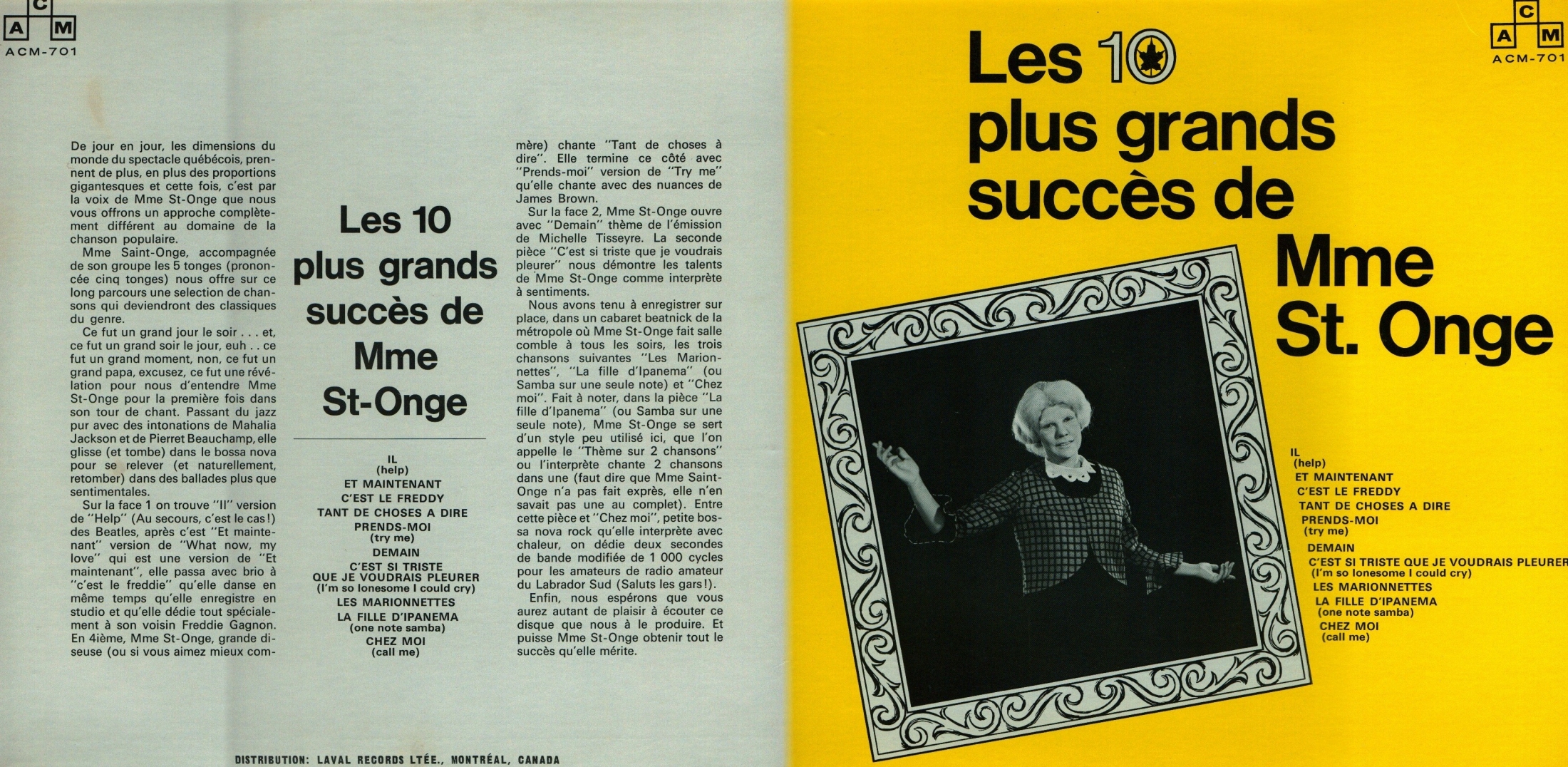Queen of the Night: Your favourite?
Posted by: kuma on 27 August 2013
Mrs. XXX FTW! ![]()
Brilliant. I'm sure some heavy post-production will straighten things out for Mrs XXXX. If it worked for Kim Wilde...
FWIW, I thought Erika Miklosa was sensational.
Richard,
Who needs an auto tune when you've got the confidence and sheer determination. ![]()
Remember Florence Foster Jenkins? (She sold out the tickets at the Carnegie.)
According to Wikipedia she was known for her lack of rhythm, pitch, and tone; her aberrant pronunciation; and her generally poor singing ability.
I think she belongs in the 'it's-so-bad,-it's-great' category.
I agree that miklosa is lovely but I like the laser pitch of Diana Damrau and her Cruella like costume and make up.
Kevin,
the difference is that both Jenkins or Mrs. XXX were both serious!
Richard,
Who needs an auto tune when you've got the confidence and sheer determination. ![]()
Remember Florence Foster Jenkins? (She sold out the tickets at the Carnegie.)
According to Wikipedia she was known for her lack of rhythm, pitch, and tone; her aberrant pronunciation; and her generally poor singing ability.
I think she belongs in the 'it's-so-bad,-it's-great' category.
I agree that miklosa is lovely but I like the laser pitch of Diana Damrau and her Cruella like costume and make up.
Many thanks for posting this Kuma. I can feel myself welling up...![]()
Kevin,
the difference is that both Jenkins or Mrs. XXX were both serious!
I'm not sure that Leona wasn't! ![]()
Have you heard Madame St Onge? Her rather, er, relaxed, attitude to the niceties of pitch, tempo and the like make for some truly horrible listening.

The late Lucia Popp (for Klemperer/EMI) may have been the best in recent years.
Im somewhat surprised that most of them intonate at least one or two of the high staccato notes wrongly - at least to my ears. But I suppose that's one of the main difficulties. Also the synchronization between orchestra and soprano is not always successful, an example being during the first 8 staccato C's of Gruberova's rendition. I think its quite obviously the fault of the conductor who wasn't following Gruberova's flexible singing leading up to the staccatos. After those first 8 all is dead on though. She's definitely one of my favourites, I especially like the expression either side of the staccatos and the natural integration of those staccatos. Here's an early interpretation by 24 year old Gruberova with piano accompaniment. I could be wrong, but to me it sounds as if she was concentrating mainly on getting her technique spot on during the difficult parts, which was probably the right thing to do at that young age. Once the technique is fully mastered, spontaneity and musicality can take over. So in her later interpretation in your compilation the staccatos fit in seamlessly in a natural way.
http://youtube.com/watch?v=hhoFfNS36yA
Here a year earlier with orchestra, from about 1:00 into the video, but please also listen to the first song, sung when she was 19 - really beautiful singing
http://youtube.com/watch?v=ALHjHTPAAto
PureReader,
I have notited the synchro problem with Gruberova segment but I found her voice too thin for my taste and her delivery is a tad hurried.
My first exposure to the Queen of the Night Aria was from the Milos Forman's Amadeus sung by June Anderson. Wolfy's evil nagging mother-in-law turns into the Queen of the Night. ![]()
Edda Moser.
EJ,
She's got a beautiful voice which is well extended and articulate.
Perhaps too pretty for the Queen of the Night!?
I'll keep my eyes open for her vinyl, tho. ![]()

EJ,
She's got a beautiful voice which is well extended and articulate.
Perhaps too pretty for the Queen of the Night!?
I'll keep my eyes open for her vinyl, tho. ![]()

Kuma, don't forget the context: Pamino actually believes she is a good queen, before Sarastro informs him otherwise. In the 18th century, 'night' wasn't a sign for bad, but the fact that the queen is a woman should have had us doubting her from the start, as Sarastro implies. The plot is a mess to be honest, by far the most inconsistent that Mozart ever penned music to.
Anyway, Moser was a dramatic coloratura - far from the whistle sopranos that normally tackle the role. Look for her complete studio recording with Sawallish, also from early 70s - it is magnificent.
Cheers,
EJ
EJ,
What is *coloratura*?
Different from Contralto?
I think the impression of the Queen of the Night has been stuck from the Amadeus scene for me as an annoying evil cow.
btw, one of my favourite opera singer is Joan Sutherland but her Queen of the Night isn't that great. ( at least based on this YouTube clip )
EJ,
What is *coloratura*?
Different from Contralto?
I think the impression of the Queen of the Night has been stuck from the Amadeus scene for me as an annoying evil cow.
btw, one of my favourite opera singer is Joan Sutherland but her Queen of the Night isn't that great. ( at least based on this YouTube clip )
Kuma,
The term coloratura soprano refers to sopranos with agility and height (up to high F). Dramatic coloraturas are a sub-category, indicating a relatively heavier voice, with height and sustaining power. Moser was one (she is still alive, BTW), so was Sutherland (I don't know her Queen - she definitely would have had the height and the agility, not so sure about the diction, which was pretty clouded at the best of times).
A contralto refers to the lowest female voice type, which sits between the mezzo-soprano and the male tenor - a full octave lower than a coloratura soprano. True contraltos are rarer than hen's teeth.
Cheers,
EJ
Thanks EJ.
Coloratura=über Soprano
